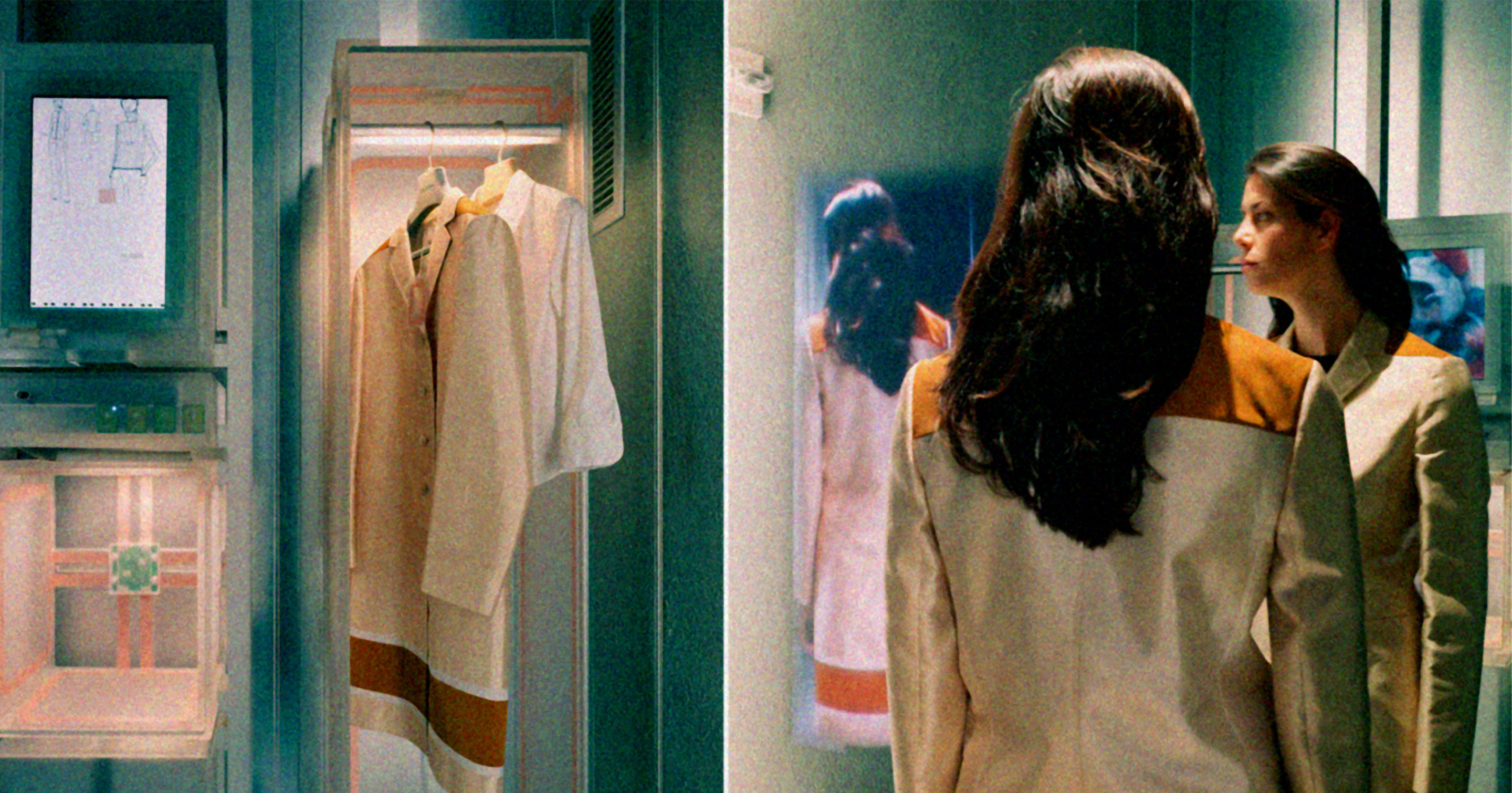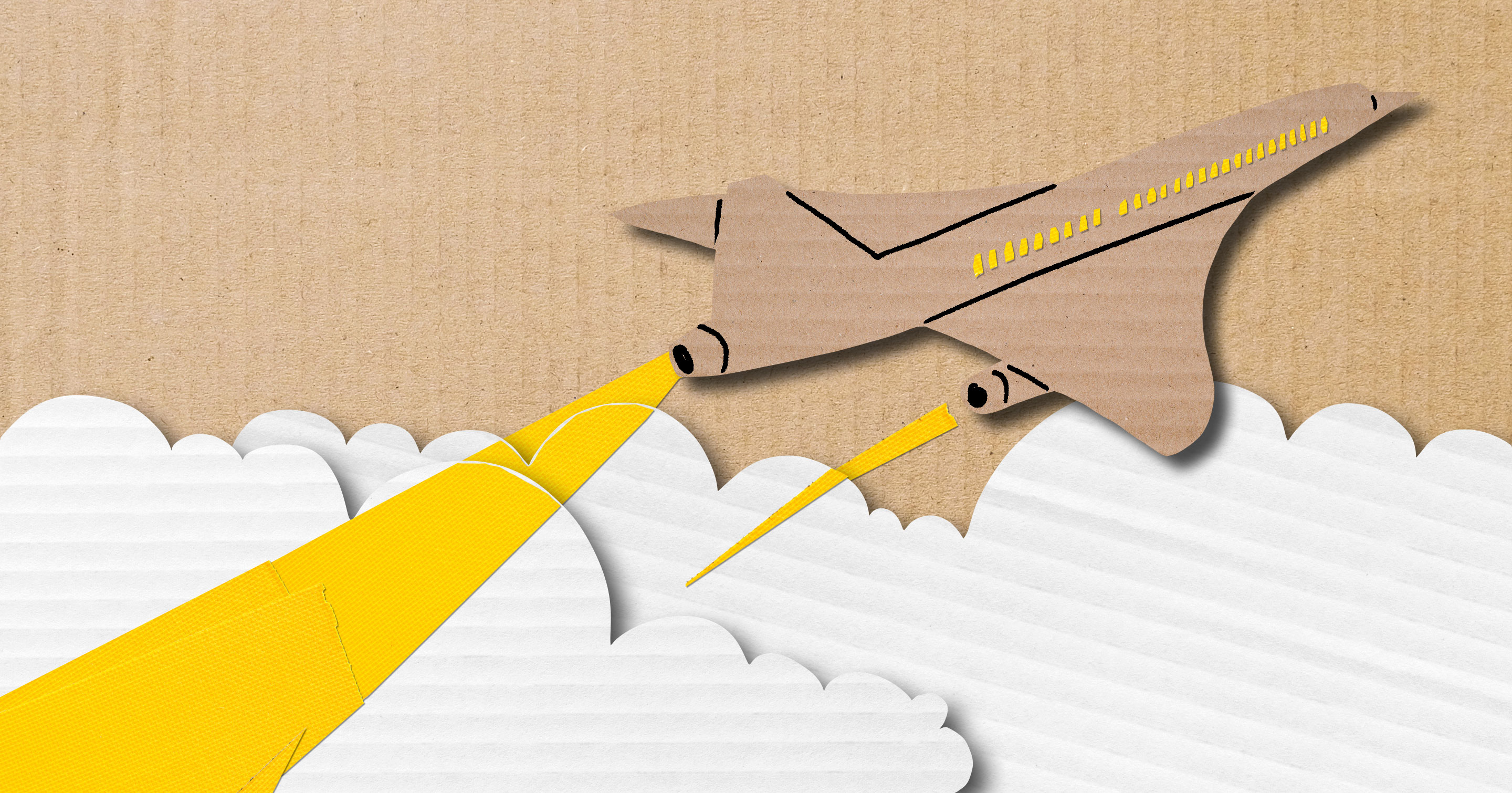The messy business of coming up with new ideas.
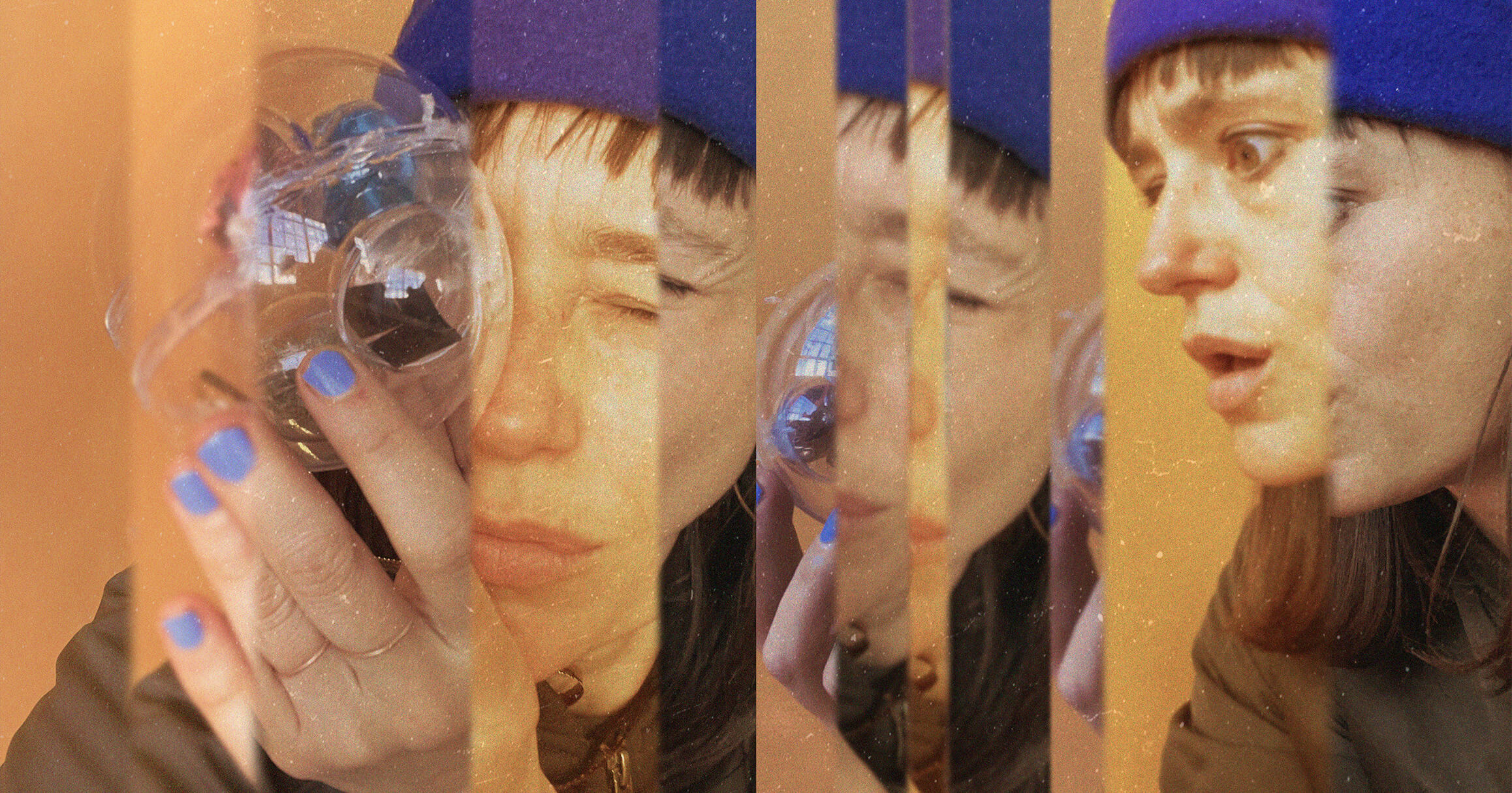
Dear future,
Can you smell this? It’s the scent of a melting doll’s head being gently pressed into a dayglo flowerbed.
There’s also a hint of our Chief Creative Officer’s perfume wafting in the air, “no.1173, the Last Almonds of November,” and “no. 79, Crisp Snow on Granite,” diplomatic offerings intended to remind politicians of scents that we may lose due to climate change—and what they still might protect.
To my left, a business strategist and industrial designer heatedly debate the financial and social benefits of a “hand-me-down, doodle-me-up” backpack program to enable creative reuse in key lifestage moments across childhood. At the other end of the table, a designer prototypes an underground music genre using sound libraries sampled from hybrid species. This moment is so very weird, so very thoughtful, and so very much where dreaming up new and disruptive ideas begins.
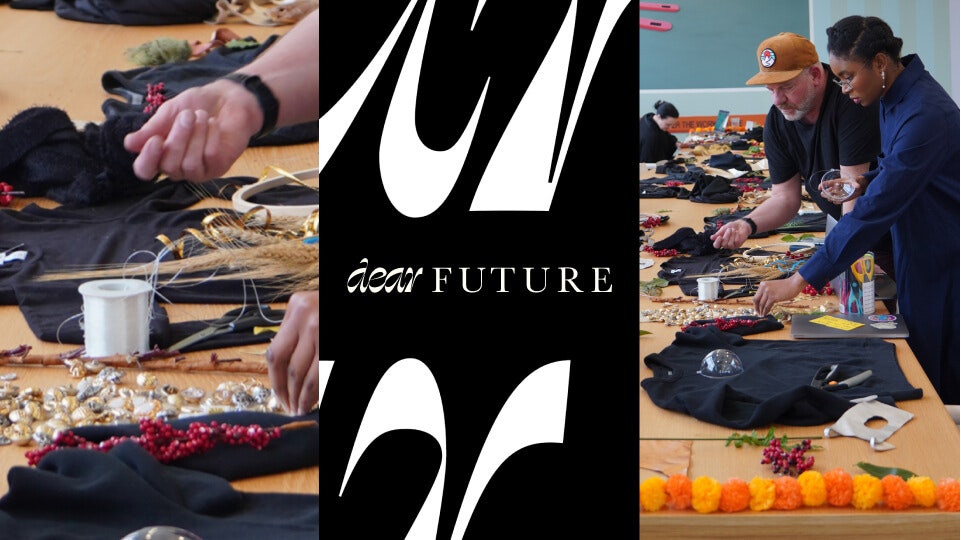
When IDEO speculates about the future, we often start by gathering around a table and giving ourselves the creative oxygen and open space to explore the questions of tomorrow—What will we need to thrive in the climate era? How can we humanize technology?—with gluesticks and glitter, not just whiteboards and whitepapers. It is a practice of imagining with our hands, building to think, and blending strategic hunches with wild cognitive leaps. We’re following the wisdom of our PlayLab, who have long argued that intentional play helps liberate thinking, slipping past the rational mind and inviting all the senses to be part of the conversation. This afternoon’s makeathon was only the beginning of IDEO's larger efforts to reimagine tomorrow. Tomorrow we diagram. But tonight we dance.
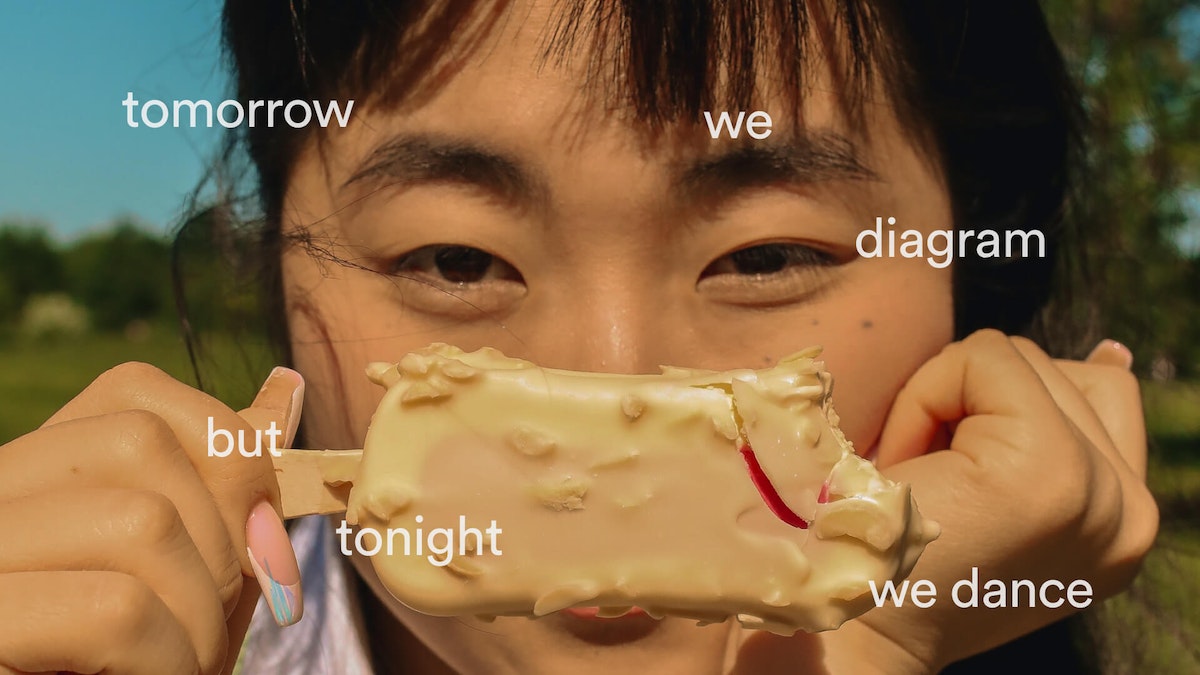
Some call it ideation. I call it rebellion. A re-wilding of imagination. As a pink-haired hacker kid in the 90s, squirreled behind my CRT in the early days of digital, I was intoxicated by the electricity of possibility crackling in the air. Digital was going to change everything. Cut to today, and it’s easy to feel that same kinetic energy all around us.
Design invites us to escape the gravity of the present in pursuit of the possible.
As we move through the Climate Era, organizations and individuals are beginning to recognize that, as the French writer and filmmaker Chris Marker put it, “Rarely has reality needed so much to be reimagined.” Design helps conjure new possibilities from the air, bringing them down from the cloud of heady theory, up from the soil of day-to-day aspirations, and into the hands of people. When done well, design fundamentally redistributes the balance of power, changing both who is at the table, and what is created. It connects the street to the skyscrapers, the mothers to the policymakers, the ethically opinionated 12-year-old to the corporation, the makers to the strategists. When we shake off these divisions and imagine together, we all become magicians, conjurers, rebels. Together, we refuse to simply accept the world as is, and instead help collectively reimagine it as it could be.
For decades, IDEO has imagined what it would feel like to inhabit the future. As our timeline for implementing climate solutions and contending with emergent technologies grows shorter, we are recommitting to that practice—creating compelling, tangible visions for how we will live, work, create, and relate to one another, the planet, and to the world around us.
Dear future, we’ve got your back. Biodegradable glitter and all.
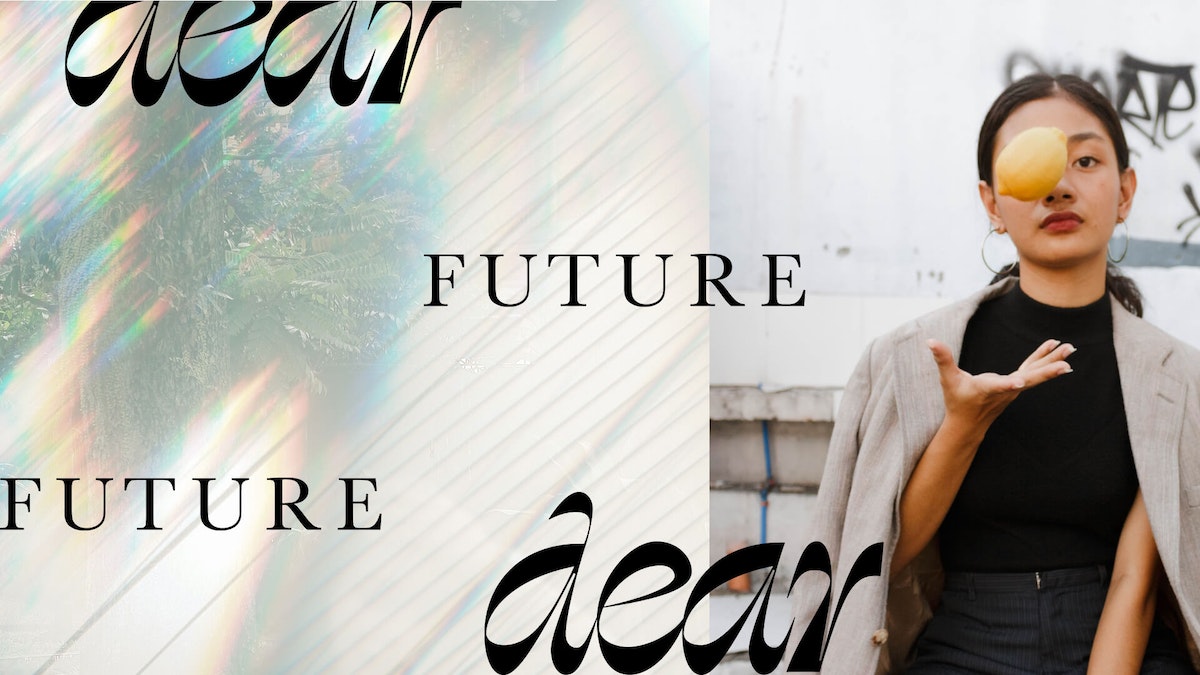
The Day’s Agenda
Our speculation about what opportunities will arise as we do business in the Climate Era kicked off with an in-person makeathon.
To set the scene, we hosted a conversation in our San Francisco office between Alexander Rose, Executive Director of the Long Now Foundation, and IDEOer Tanja Dzambazova. Since 1997, Rose, Danny Hillis and The Long Now team have led a range of efforts encouraging imagination at the timescale of civilization—the next and last 10000 years—including a monumental, all mechanical 10,000 Year Clock. It was an excellent primer on long-term thinking.
Flush with inspiration, we gathered around a long table littered with raw materials: leather and felt scraps, leaves and twigs, markers, and glue guns. We gave each team a brief and an hour to rapidly prototype speculative products, services, and experiences for a potential client. The point in a makeathon isn’t to come up with a perfectly viable concept, it’s to slip beyond a rigid, legacy mindset and enter a more flexible, generative mode where you can come up with new-to-the-world ideas.
OUR BRIEFS
- Electrify Everything
How might we live differently in a world that is running off of renewable energy? What is unlocked in a world where all industrial machines, homes, neighborhoods, and appliances are intelligent, efficient, connected, and powered by renewables? - Waste-Less Living
What might everyday life look like if the products we use, clothes we wear, and industry standards and systems are waste-less, adaptable, and regenerative? What could more intentional “design for immortality” look like? - Frontline Futures
How might we design new experiences, products, and services for those on the frontline of climate impacts? What new mitigation, prevention, and adaptation opportunities can we surface through a human-centered lens rooted in the experience of those most at risk? - Carbon Transparency
How might we live differently in a world where carbon transparency (scope 1,2 & particularly 3) is fully complete? What is unlocked in a world where consistent measurement and blockchain logging produces a live carbon score for any object or activity on earth? - New Nature Rites
How might a globally viral belief system responsive to climate change create new rituals, symbols, events, holidays, and social narratives?
With those prompts in hand, teams split off and started making. Here’s some of the output.
Remember, these aren’t meant to be realizable ideas. They are jumping off points—kernels of business opportunities that we’d like to explore further:
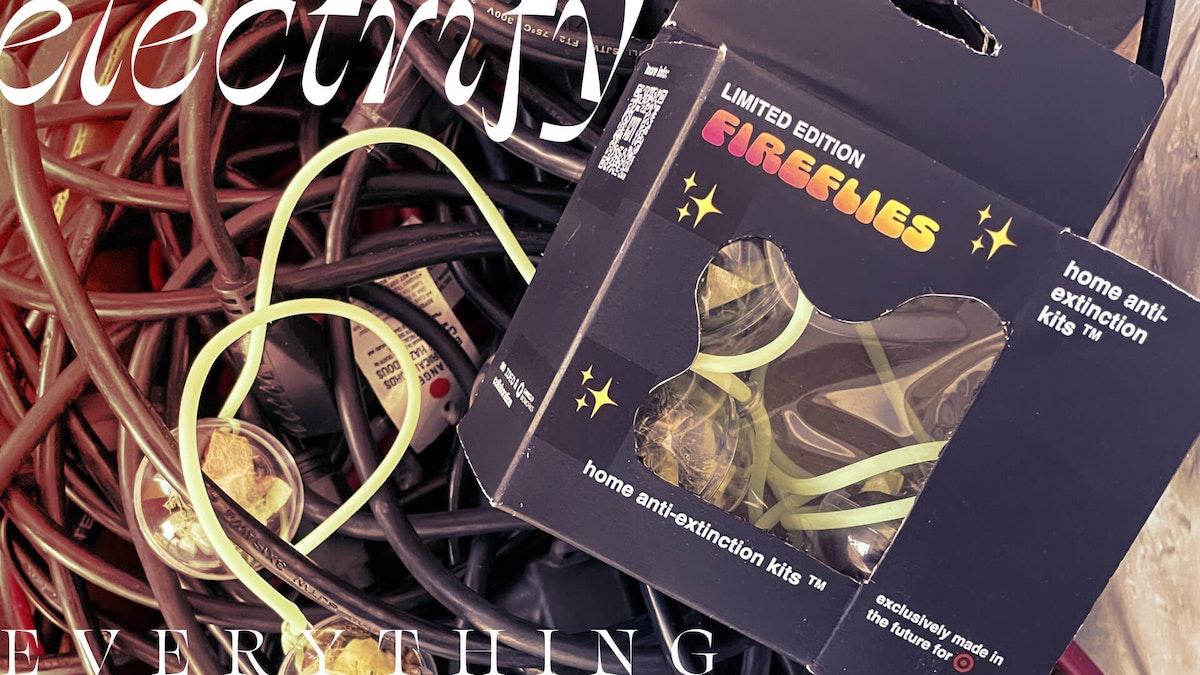
Client: Target
Theme: Electrify Everything
Design Concept: “Anti-Extinction Kit: Fireflies Edition”
A set of globe lights powered by fireflies is one in a series of kits to help re-nature our backyards and cultivate anti-extinction habitats. As climate change starts to affect food sources and safe places for firefly larvae dwindle, these backyard accessories are safe havens for fireflies to fuel up, lay their eggs, and lend their glow to light up a backyard. Also comes in glowing fungal and pond editions.
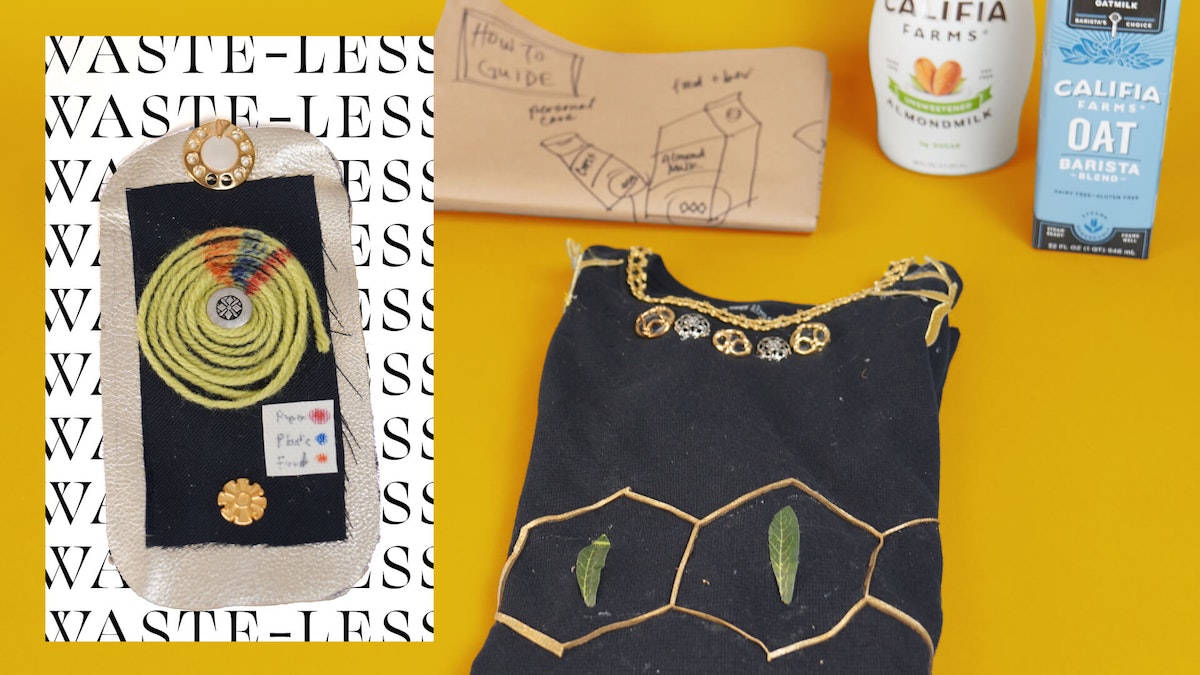
Client: Amazon
Theme: Waste-less Living
Design Concept: “Trash Rabbit: A rewards based packaging system”
An on-demand service that comes to your home and breaks down your trash—preserving valuable metals and other raw materials, disposing toxic elements, and processing recyclable elements. Users earn rewards and cash back when they purchase simpler, mono-material products.
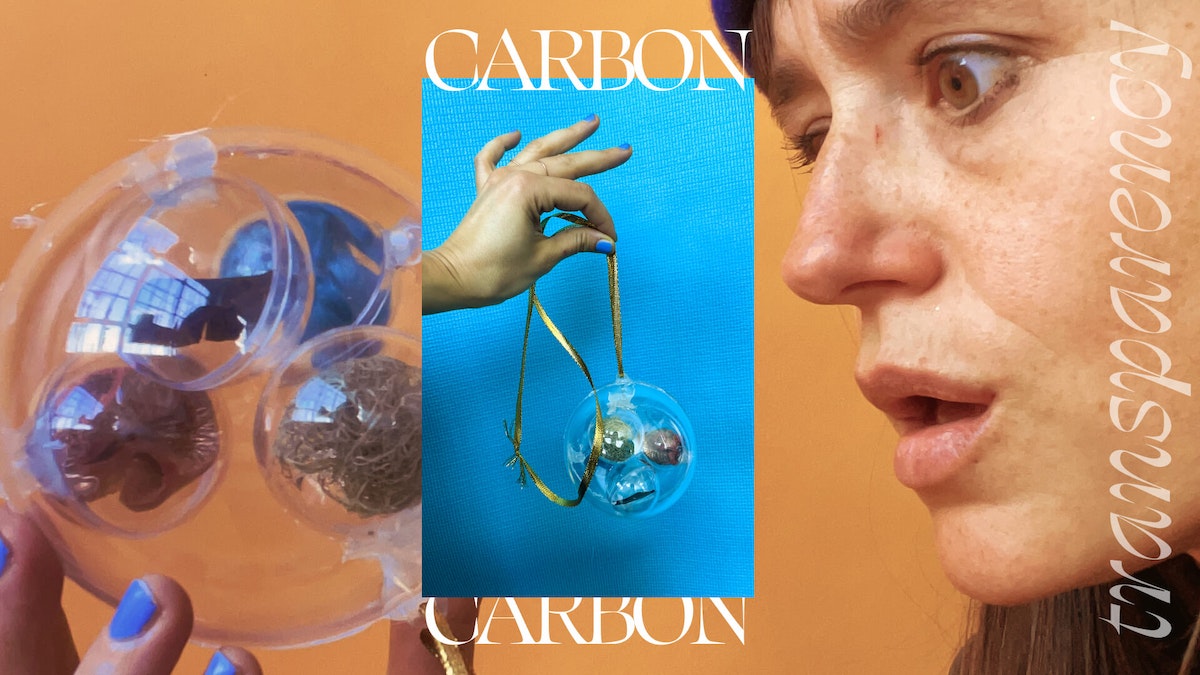
Client: Ford
Theme: Carbon Transparency
Design Concept:
A globe you wear as a necklace, like a Magic 8 ball. When shaken, it displays the most efficient, carbon-neutral way to get from point A to B, offering options that require tradeoffs and offsets. An intuitive sensory companion helps you make hard choices.
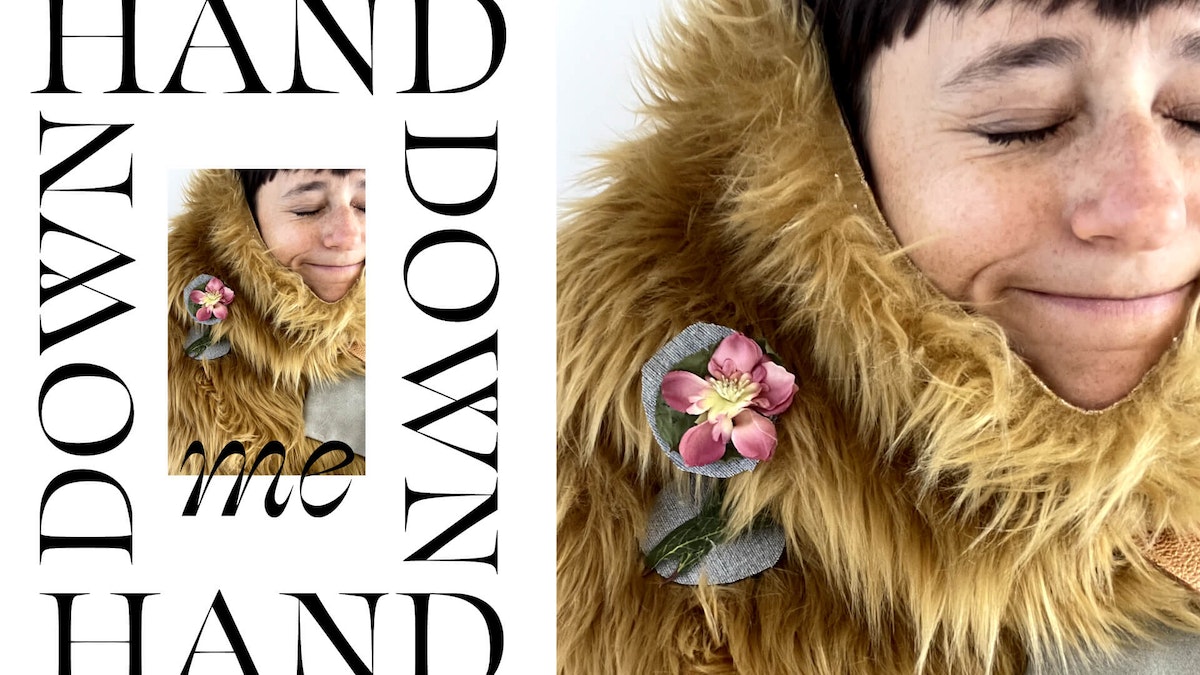
Client: REI, Patagonia
Theme: Nature Rites
Design Concept: “Intergenerational rites of passage”
A program in which gear is intentionally designed as a blank canvas to be passed down from generation to generation with a hand-me-down or yearbook element: You customize the backpack, sleeping bag, jacket, and other products with badges and add-ons to celebrate rites of passage like a first camping trip.
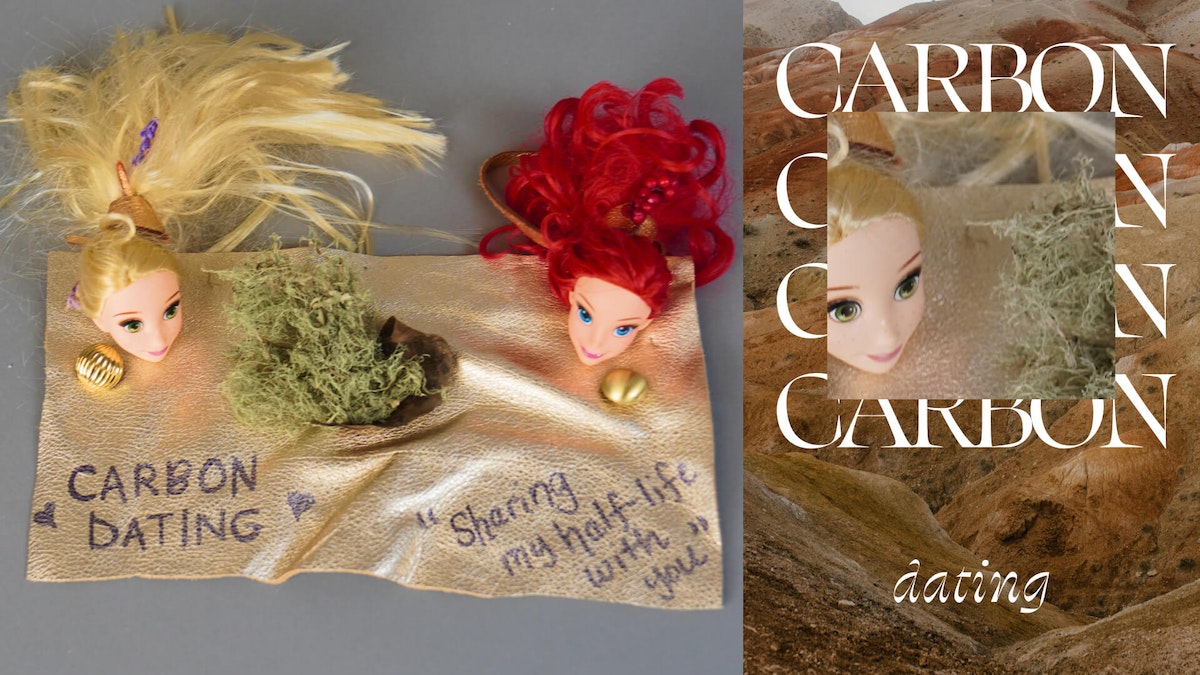
Client: Dating apps
Theme: Carbon Transparency
Design Concept: “Carbon Dating”
Matchmaking service based on shared environmental goals and behaviors. This is a time in which your carbon score makes you more desirable. Benefits include having similar habits and values—making moving in together a lot easier. Unintended consequences include creating an elitist competitive set where having the lowest score becomes more important than other human qualities.
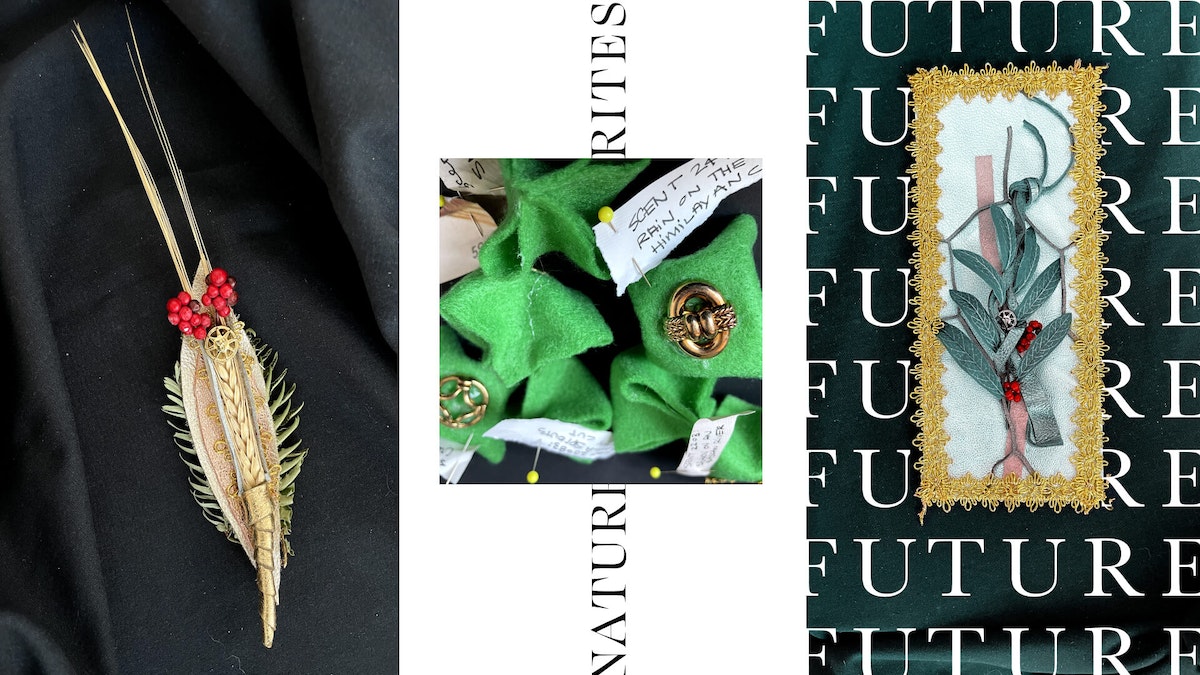
Client: United Nations
Theme: New Nature Rites
Wheat Pins Alliance
Made with the last piece of non-GMO wheat on earth, it’s our new cross-national symbolic pic worn to show allegiance to the earth. Due to monoculture farming practices, a future fungus wiped out the world’s wheat supply including GMO and non-GMO strains that weren’t strong enough to fight it
Lingering Scent Library
Last of their kind scents that were collected and stored in anticipation of climate change—the smell of snow on granite, an aroma of crushed almonds—that are offered to diplomats to remind them of what has been lost and what is still to be protected.
The New Earth Flag
Emblazoned with the shapes and colors of our last remaining shrubs, it represents Earth’s ecotone as it becomes increasingly desertified.
Will we see these ideas come to fruition? Probably not. But like any thought experiment that asks “what if…” they can lead to new ways of thinking and future business opportunities. The organizations that can anticipate what people will want and need in the next 10 years are the ones who will thrive in the Climate Era. What will technology make possible? What will dwindling resources make scarce? What will it take for humans to adopt planet-friendly solutions at scale?
Design’s role is to consider all of those factors and lovingly break, shape, and remake. To escape the gravity of the present in pursuit of the possible. And that starts by making a giant mess.
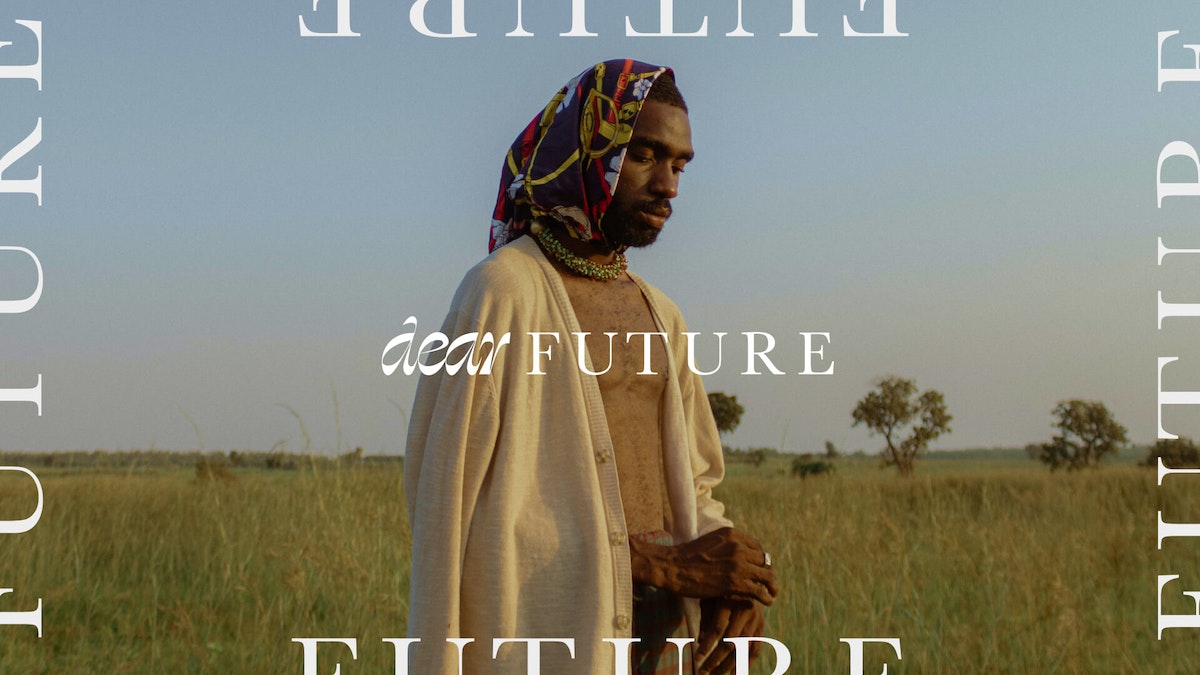
Words and art
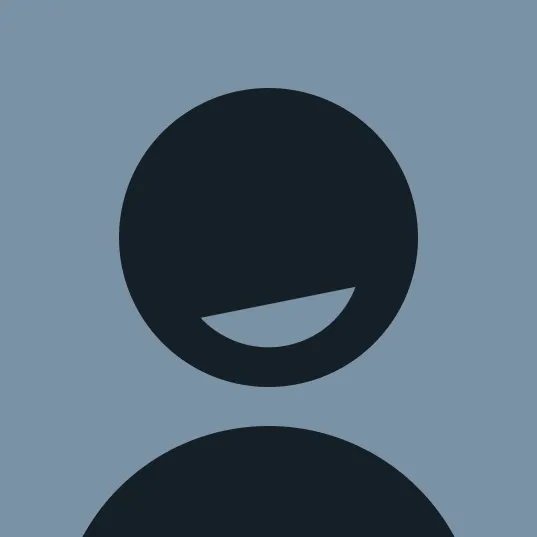

Subscribe

.svg)








